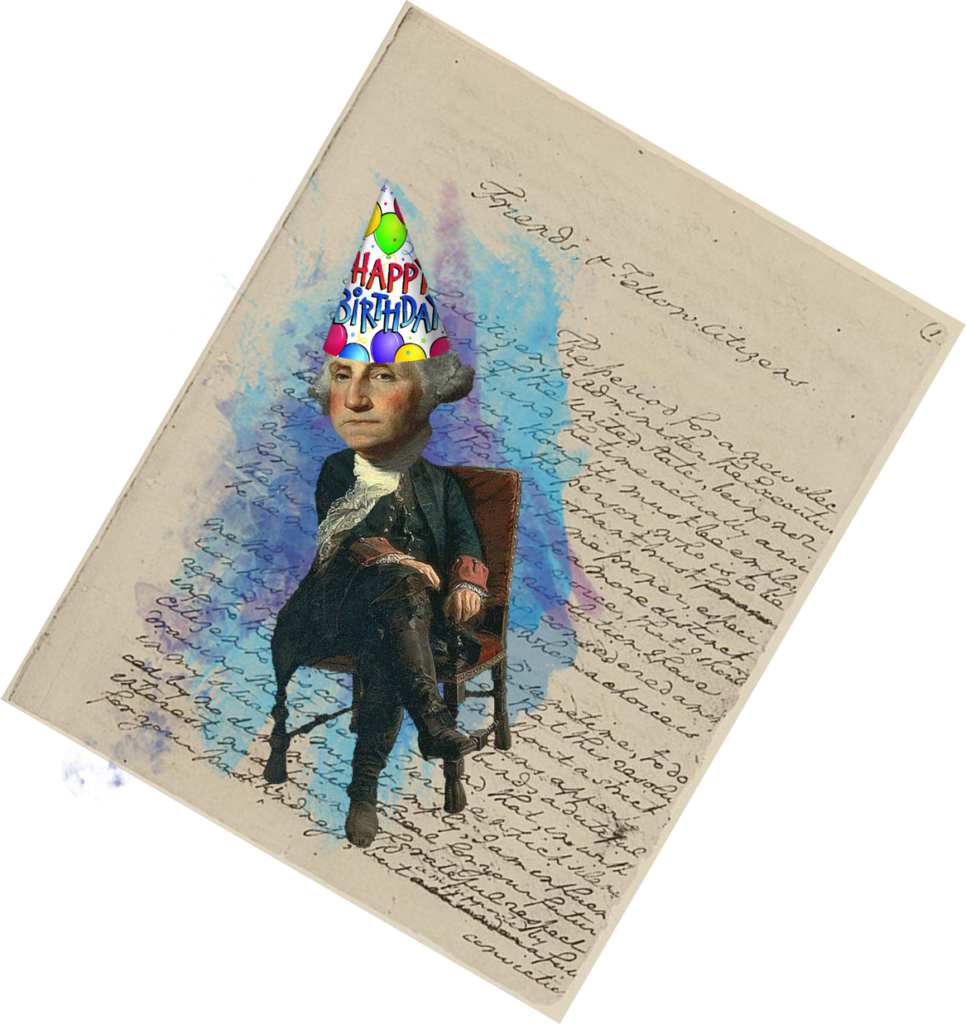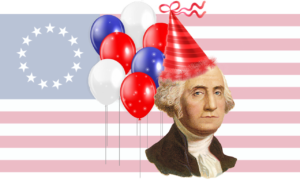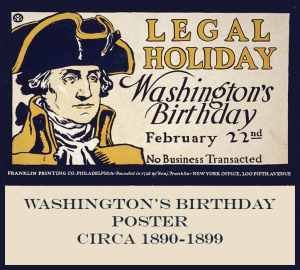Today, America celebrates what has come to be known as Presidents’ Day. Officially, however, the Federal Government still calls the holiday “Washington’s Birthday.” Although we must never forget that Washington was a slave owner, his political life reminds us that a President can serve with both dignity and honor. Like most politicians, Washington had no shortage of self-esteem. Yet, unlike many of his successors, he demonstrated a public modesty and humility befitting an elected official whose primary purpose is to the serve the people who elected him. He also fiercely opposed the establishment of political parties. In his farewell address, he stated, “However [political parties] may now and then answer popular ends, they are likely in the course of time and things, to become potent engines, by which cunning, ambitious, and unprincipled men will be enabled to subvert the power of the people and to usurp for themselves the reins of government, destroying afterwards the very engines which have lifted them to unjust dominion.” His words were prophetic.
Some pundits insist the current two-party system has brought us to the brink of another civil war.[1] Yet doing away with political parties is both impossible and impractical. It is difficult to imagine how the American political system would have survived without some kind of party apparatus; however, despite the existence of a number of parties over the years (e.g., Democratic-Republican Party, the Federalist Party, the Whig Party, the Bull Moose Party, and the Liberty Party), the system has always reverted to a two-party system. Alexander Cohen, an Assistant Professor of Political Science, Clarkson University, writes, “The American two-party system has long been besieged. Many of the founders feared that organizing people along ideological lines would be dangerous to the fledgling nation. Alexander Hamilton called political parties a ‘most fatal disease,’ James Madison renounced the ‘violence of faction,’ and George Washington feared that an overly successful party would create ‘frightful despotism.'”[2]
Washington foresaw the kind of geographical divisions that eventually led to the first civil war. Regional differences continue to feed today’s political animosities. Washington went on to warn the people, “in the most solemn manner, against the baneful effects of the Spirit of Party, generally.” Despite political polarization, Cohen reports that most Americans aren’t very big fans of either political party. He writes, “A majority — 57% — of Americans believe that parties do ‘such a poor job’ that a third major party is needed.” Is that possible? Third parties have not fared well in American politics.
Cohen believes the two-party system is here to stay, with no chance of America becoming a multi-party state. His reasoning is explained below. Other political scientists disagree. Lee Drutman (@leedrutman), a Senior Fellow at New America, believes continuing the two-party system, especially when the parties continue to favor the extremes, could be disastrous for America. According to Drutman, the two-party system could lead to: “More contested elections, more violence and, ultimately, a collapse into competitive authoritarianism enabled by electoral advantages that tilt in one party’s favor.”[3] He adds, “In order for democracy to work, competing parties must accept that they can lose elections.”
He believes the answer to today’s political conundrum is to make America a multi-party state. He reports, “Citizens in majoritarian democracies [i.e., two-party states] with less proportional representation dislike both their own parties and opposing parties more than citizens in multiparty democracies with more proportional representation. … If the structure of a party system is as crucial as these studies suggest it is, then the solution is obvious: The U.S. may want to change its voting system to become more proportional.”
A new political party capable of garnering enough support to deny either the Democrats or the Republicans a majority in Congress would immediately encourage more compromise — especially if that party represented the moderate middle favored by most independent voters. George Washington was not so naïve as to think political parties wouldn’t arise. He noted, “This spirit [to create parties], unfortunately, is inseparable from our nature, having its root in the strongest passions of the human Mind. It exists under different shapes in all Governments, more or less stifled, controlled, or repressed; but in those of the popular form it is seen in its greatest rankness and is truly their worst enemy.”
Washington’s greatest fear was that one-party would rise to dominate the American political scene. He explained, “[The] domination of one faction over another, sharpened by the spirit of revenge natural to party dissention, which in different ages & countries has perpetrated the most horrid enormities, is itself a frightful despotism. But this leads at length to a more formal and permanent despotism. The disorders & miseries, which result, gradually incline the minds of men to seek security & repose in the absolute power of an Individual: and sooner or later the chief of some prevailing faction more able or more fortunate than his competitors, turns this disposition to the purposes of his own elevation, on the ruins of Public Liberty.”
Cohen insists, “The U.S. will always have parties. They are necessary and inevitable for two reasons. First, they facilitate the collective representation of individual interests. … Parties amplify individual voices by combining them into a louder, cohesive message. … Second, particularly among voters with little political knowledge, party identification simplifies voting. A voter may know nothing about candidates on Election Day but can use their party identification to make a reasonable decision.” Are Americans really so ignorant they can’t make an informed choice at the ballot box?
America’s best hope of avoiding the “frightful despotism” of party politics is to encourage the rise of a third party whose candidates can work with politicians from both of today’s prominent political parties. Unfortunately, Cohen believes you shouldn’t hold your breath waiting for a third party to emerge. He insists the two-party system will remain an enduring feature of American politics. He explains, “America uses a system called single member district plurality, which means that each election produces only one winner. Because voters generally do not wish to ‘waste’ a vote, they focus on their most preferred electable candidate. Because in a two-party system the major parties seek to appeal to broad coalitions to maximize electability, this is almost always a Republican or a Democrat. It is almost never a third-party candidate, which the voter might actually prefer. Candidates and their wealthy supporters recognize this, and so they ally with major parties rather than creating a third.” Populism amplifies the worst tendencies in this system because it stresses party over country. It was a danger Washington recognized. He stated:
“There is an opinion that parties in free countries are useful checks upon the Administration of the Government and serve to keep alive the spirit of Liberty. This within certain limits is probably true. … But in those of the popular character, in Governments purely elective, it is a spirit not to be encouraged. From their natural tendency, it is certain there will always be enough of that spirit for every salutary purpose. And there being constant danger of excess, the effort ought to be, by force of public opinion, to mitigate & assuage it. A fire not to be quenched; it demands a uniform vigilance to prevent its bursting into a flame, lest instead of warming it should consume.”
Drutman concludes, “The theory that guided Washington and Adams was simple, and widespread at the time. If a consistent partisan majority ever united to take control of the government, it would use its power to oppress the minority. The fragile consent of the governed would break down, and violence and authoritarianism would follow. This was how previous republics had fallen into civil wars, and the Framers were intent on learning from history, not repeating its mistakes. … Multiparty democracy is not perfect. But it is far superior in supporting the diversity, bargaining, and compromise that the Framers, and especially Madison, designed America’s institutions around, and which they saw as essential to the fragile experiment of self-government.”[4] Were Washington to return today, he wouldn’t be surprised by the mess the two-party system has become. He might even encourage the creation of a third party to help counter the political extremes. On his birthday, he might even shout, “It’s party time!”
Footnotes
[1] Dana Milbank, “‘We are closer to civil war than any of us would like to believe,’ new study says,” The Washington Post, 17 December 2021.
[2] Alexander Cohen, “The two-party system is here to stay,” The Conversation, 2 March 2020.
[3] Lee Drutman, “Why The Two-Party System Is Effing Up U.S. Democracy,” FiveThirtyEight, 16 June 2021.
[4] Lee Drutman, “America Is Now the Divided Republic the Framers Feared,” The Atlantic, 2 January 2020.





